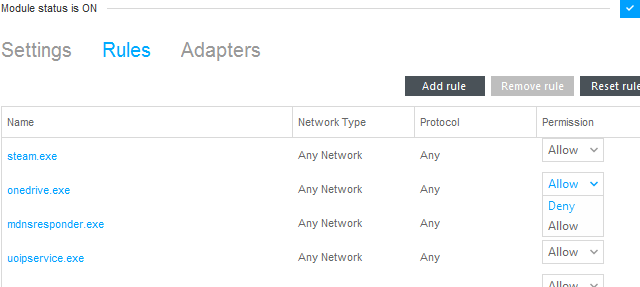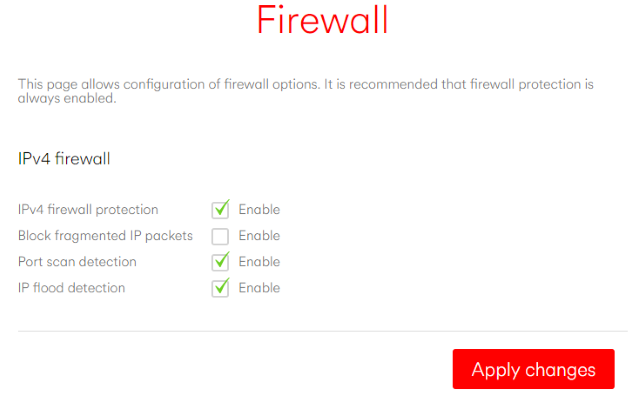You've heard of firewalls, but what are they really for? Do they stop viruses? Can you manage without one?
There's a good chance that you are using a firewall right now. If your computer is running a modern operating system, a firewall is typically built in. Or you might be using a third-party firewall that you've installed.
But what is it for? And can you get by without it? Keep reading for reasons why you do, in fact, have need of a firewall.
What Is a Firewall and Why Is it Necessary?
First of all, let's look at what a firewall actually is. You need to understand that there are no flames, no spark, no fuel of any kind involved, whatsoever.
A firewall is a barrier or shield designed to protect your device from the data-based malware dangers on the internet. A device can be anything from a PC, phone, tablet, to a media server, TV, and many other devices besides.
Basic online activity looks like this: data is exchanged between your device and servers and routers in cyberspace. Firewalls monitor this data (sent in "packets") to check whether they're safe or not.
This is done by establishing whether the packets meet the rules that have been set up. Based on these rules, packets of data are accepted, or rejected.
Most operating systems (desktop and mobile) feature a basic built-in firewall. However, better control options and more reliable results are often gained from using a third-party firewall application. These are available either as standalone tools or as part of a security suite.
Firewall applications feature various automated tools that use whitelisting to check which apps should accept and reject internet access. This is something that most users might find far too time consuming to do manually.
Now that it's clear what a firewall is for, it should make sense to have one installed and active. But just in case you're still doubtful, lets look at some more reasons why you need a firewall.
1. Use a Firewall to Prevent Unauthorized Remote Access
One of the worst things that could happen to your computer is if someone attempts to take control remotely. You don't want a remote intruder to usurp your digital kingdom, assuming control of your data.
With a correctly configured firewall (and a modern OS) you should have remote desktop access disabled. This will prevent hackers from secretly taking over your computer
Note, however, that this does not block the remote control apps used by the Windows tech support scammers. These are browser-based and rely on the scammers fooling you for permission. As your browser already has permission to route data through the firewall, you'll continue to be susceptible to this risk. Remain vigilant!
Illegal copies Windows found on the Bittorrent networks often come with malware (Trojans, keyloggers, backdoors) preinstalled in the disk image. If you're running one of these, even with a firewall installed, you're likely to have security issues.
Understand also that firewalls block access by apps---perhaps software that you trust---from unauthorized internet access.
2. Firewalls Can Secure Old PCs… Short Term
Incredibly, there are still people using Windows XP and Windows 7, despite them being released in 2001 and 2009, respectively. Worse, some of them are using these operating systems without a firewall.
You read that right. The internet has a lot of bad code traversing the cyberspace, waiting to pounce on unprotected PCs. While your ISP can help prevent this, its intervention is limited.
So, you Windows 7 users out there (14% of computers as of June 2019) do yourselves a favor. Install a third-party firewall just to make sure.
Once you've done that, begin the process of upgrading. Upgrade to Windows 10 if possible, or even to Linux. Or simply buy a new computer capable of running a modern, secure operating system.
Because right now, you're an easy, live target for hackers.
3. Firewalls Make Online Gaming Safer
Online gaming is one of the most significant internet activities, but it is also a potential security risk. Various malware has been developed that targets online gamers, existing on unsecured or recently compromised game servers.
While game publishers usually keep on top of security on their servers, using a firewall is smart. Any attempts by hackers to use their malware to get into your system will be blocked, leaving your system secure.
In most cases, the firewall will configure itself based on the requirements of the game, using information provided in metadata.
Note that security suites often ship with "Gaming Mode" or some other similar option pre-installed. Use this to optimize your computer before launching your favorite game and ensure the best available performance. If there are problems, you can consult the game's support pages and edit the firewall application settings.
Console gamers can take advantage of hardware firewalls or routers if there is a requirement to edit settings.
For further security, consider a VPN for online gaming.
4. You Can Block Unsuitable or Immoral Content With a Firewall
We've been talking mainly about blocking hackers and various types of remote access malware so far. However, firewalls are capable of more than this. Firewall applications usually also feature the option to block specific online destinations, including adult websites.
Content filtering is usually found in parental control applications, but is increasingly included in firewalls.
Note that in the UK and parts of the European Union, content blocking might be managed by the ISP. This is an opt-out service, requiring you to inform the ISP if you want to disable the block.
5. Firewalls Can Be Hardware or Software
As alluded to above, firewalls don't necessarily have to be software. Hardware firewalls are found in most homes, built into the router.
Accessing these firewalls settings requires the administrator credentials for the router (make sure you've changed the default password). Once signed in you should be able to review the options and change them if necessary.
Occasionally you'll need to make some tweaks, especially for online gaming with a games console. For instance, changing the NAT type on the PlayStation 3 and PlayStation 4 is a common fix for online gaming connectivity issues.
Make sure you check the documentation for your router to familiarize yourself with the settings before saving any changes!
You Can't Use a Firewall For Everything
With all of this in mind, it's worth considering what a firewall cannot do. We've already mentioned malware, but this encompasses the whole gamut of Trojans, viruses, worms, etc. While a firewall should block backdoor access via a Trojan, there's a chance that this can be bypassed.
Worse still, firewalls cannot tackle viruses, worms, keyloggers, and other malware. Therefore, a firewall must be used in conjunction with an anti-virus tool.
These days, the antivirus market is increasingly difficult to navigate. What you need is a list of the best security and antivirus tools.




